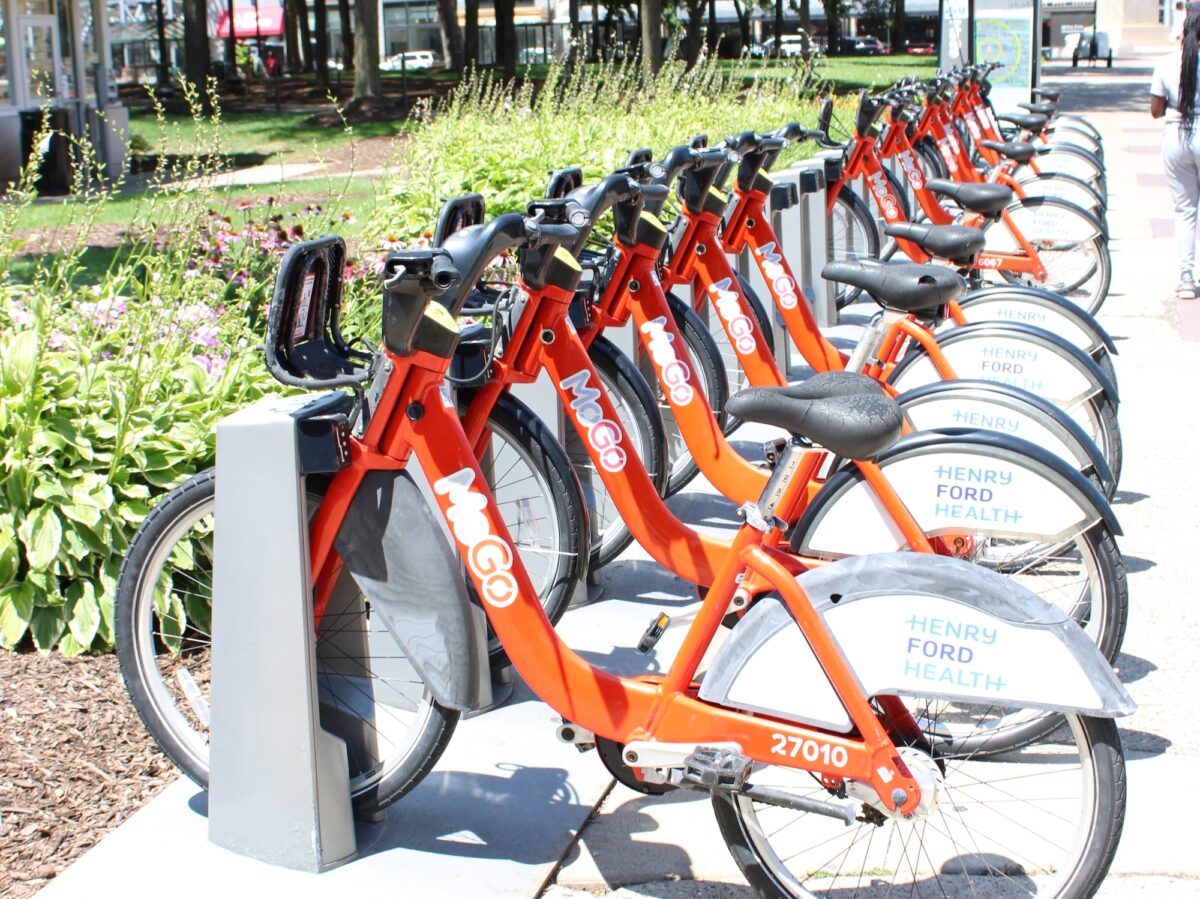by Anya Desai

This piece is part of the Detroit Journalism Summer Camp, run by The Detroit Writing Room in partnership with Planet Detroit.
Every year, thousands of children living in Detroit breathe polluted air, putting their health at risk and increasing the likelihood of asthma, respiratory issues, heart attacks and even premature death. Without any improvements to air quality, experts say the long-term health and development of Detroit’s children will remain in jeopardy.
One of the main causes of Detroit’s worsening air quality is vehicle emissions from passenger cars, trucks and public transportation. According to a 2023 study by the University of Michigan School of Public Health, mobile emissions make up about 40% of PM2.5, particles smaller than approximately 2.5 microns.
These fine particles have the potential to penetrate deep into the lungs and bloodstream and contribute to serious health problems. PM2.5 is 30 times smaller than the diameter of a single strand of hair.
In 2024, the American Lung Association named Detroit the 13th worst city in the U.S. for year-round particulate pollution — and in 2025 it jumped to sixth.
According to Dr. Mohammedi Savliwala, a pediatrician and allergist, poor air quality can have disastrous consequences for kids.
“There is increased risk of asthma in children, which is a huge contributor to chronic morbidity, even actually mortality in children,” he says.
He adds that a recent study in the Journal of the American Heart Association found pollution negatively affects the heart in teens.
While air pollution can affect adults, children are especially vulnerable. Since children breathe air that’s closer to the ground, where pollutants tend to gather, and because kids have a higher respiratory rate, air pollution is a much bigger danger to them, Savliwala says.
Asthma is one of the many serious effects of exposure to polluted air, but poor air quality has also been linked to increased rates of heart attacks, strokes and pregnancy complications.
“Studies (show) it leads to premature birth, low birth weight and even stillbirth,” Savliwala says.
Gas-powered cars, trucks, public transportation and even construction equipment are major sources of pollution in Detroit. Foul air is most prevalent in neighborhoods near factories and highways.
“The lower socio-economic groups have a higher risk because they’re living close to places like factories where air pollution is higher,” Savliwala says.
Because of city planning and industrial zoning, many low-income neighborhoods are located directly along high-traffic streets, increasing exposure to dangerous emissions.
“(Planners) orchestrated that expressways and major thoroughfares be put through Black communities to have the least impact on white communities,” says Theresa Landrum, a Detroit community organizer and activist who fights against environmental injustices.
Events like the 2023 and 2025 Canadian wildfires made conditions even worse, with pollution levels in Detroit spiking during and after smoke drifted into the city.
“Our air quality has always had a problem, and now we’ve got it compounded with other things like wildfires, chemical spills and releases,” Landrum says.
At the height of the wildfires, Detroit experienced some of the worst air quality in the world, with the Air Quality Index reaching “very unhealthy” or even “hazardous” levels. Residents were urged to stay indoors, and schools canceled outdoor activities. The smoky air posed an especially serious risk for children with asthma or other respiratory conditions.
“You’ll be playing outside, and then you can get really congested or cough more after,” says Uma Patel, a 14-year-old tennis player and Metro Detroit resident, discussing how she felt during air quality advisories this summer.
While the Canadian wildfires aren’t the main cause of pollution today, they demonstrated the catastrophic effects air pollution can have on children.
Air pollution in Detroit continues to impact the health and development of children across the city. Poor air quality can cause respiratory issues, increased school absences and overall health decreases. These problems don’t just hurt children, they also affect schools, health care systems and families.
If air pollution continues to get worse, these effects will only grow more severe and harder to manage. Without immediate action, Detroit’s children will bear the lifelong consequences of polluted air — affecting their health, their future and the city’s well-being.
How can you help?
Detroit is working to improve air quality through various initiatives, including efforts to electrify public transportation and enforce stronger rules on vehicle emissions. You can make a difference in your community by choosing sustainable transportation like biking or carpooling and supporting environmental advocacy groups.
How to alleviate the health effects of air pollution:
- Limit time outdoors.
- Use an air purifier at home to minimize pollutant exposure.
- Change your air conditioner and air purifier filters regularly.
- When the AQI is at very high levels, try to stay indoors.
- Change clothes after being outside in polluted areas.

Anya Desai is a 9th grader at Troy High School. She lives in Troy, Michigan and loves writing. She also enjoys theater, reading and baking. She chose to learn about journalism because she likes to be aware of what’s going on around her and wants other people to be aware of what’s going on around them.


